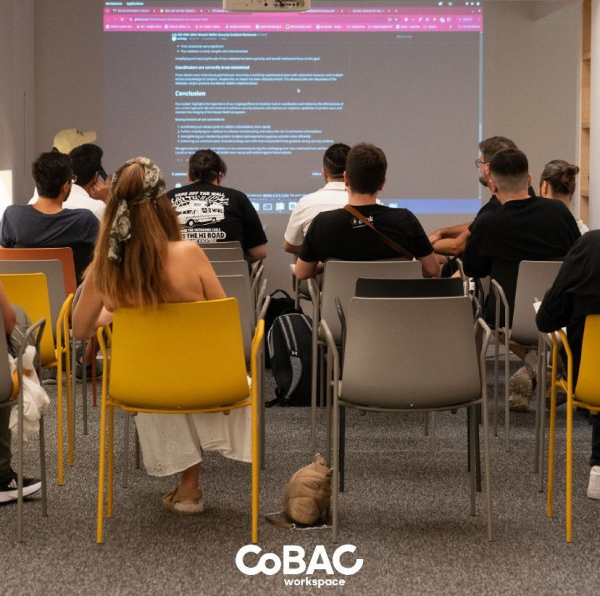Kick-Off
8 years ago in 2016, Andreas Antonopoulos once described his Bitcoin learning journey: “It’s a never ending journey of discovery. You scratch the surface, you find a layer; you dig, you find another layer; you go deeper, you find another layer that opens up new opportunities and possibilities; you start experimenting with those, you open up another layer. And while I’m doing that, Bitcoin itself is evolving. Bitcoin today is not Bitcoin of 2009. It’s growing, it’s evolving, it’s developing new capabilities and features. And so I’m absorbing as much information as possible but the information itself is growing at the same time. So while I know a lot about Bitcoin, I will never know everything about Bitcoin.” Watch Clip
8 years later, at the end of July 2024, former US president Donald Trump and presidential candidate Robert F. Kennedy spoke at a Bitcoin conference. It was part of their campaigns running for the highest office in the USA. Both of them made big election promises in hopes they would win votes from people who like Bitcoin.
But what is good Bitcoin policy and how is it created? Can politicians really take the appropriate time out of their busy schedules to develop the necessary understanding to regulate this emerging technology like Antonopoulos did? Presidential candidates don’t make policy on their own, of course. They have big teams of research assistants who advise them. The same is true not just for presidents, but other political representatives as well, like members of the House of Representatives and the Senate. These, too, have teams of researchers who need to be proficient in order to advise and devise sensible policy.

The reality today is that there is a pressing need for politicians to have teams that have a firm grasp and understanding of Bitcoin. Technological progress is happening constantly and inevitably, and public policy must keep up and adapt to it. The negative consequences of backwards policies resulting from a lack of understanding of technology can be severe for a society and must be avoided. This is well understood in developed countries.
When talking about Bitcoin, we often use analogies to explain its various parts, for example the process of creating new bitcoins is referred to as “mining”, the software used to store and transfer bitcoin is called “wallet”, and protocols that build on top of the bitcoin blockchain are referred to as a “layer”. These analogies or skeuomorphisms, are very helpful models for beginners when developing an initial understanding of how the various parts of Bitcoin work and play together, but they are only limited models and utterly insufficient for engineering useful software or regulation for Bitcoin.

Blind Men and an Elephant, 1907
Furthermore, Bitcoin is a novel complex system that is unlike anything we’ve seen before, sitting at the intersection of vast fields of study like computer science, cryptography, mathematics, distributed systems, economics, game theory, philosophy and energy. Approaching it from just one perspective is almost certainly going to lead to a view that is incomplete and misleading. The ancient Indian parable “Blind Men and an Elephant” illustrates this problem. Just like a faulty map of the world made Christopher Columbus end up in the Americas instead of India, a faulty model of reality can lead software developers to write bad code and politicians to draft harmful regulations.

1889 cover of Judge magazine warning of the dangers of electricity
In order to understand Bitcoin better and keep up with its developments, a group of developers created BitDevs in New York City in 2013. BitDevs, short for “Bitcoin Developers,” is a community-driven initiative that focuses on fostering a collaborative environment for Bitcoin developers and enthusiasts. The primary aim of BitDevs is to provide a space where individuals interested in Bitcoin, particularly its development and technical aspects, can gather to discuss, learn, and contribute to the ecosystem.
BitDevs organizes regular meetups, often referred to as Socratic Seminars, where participants discuss recent developments in Bitcoin and related technologies. These seminars are typically technical and cover topics such as protocol updates, security issues, cryptography, and more. The Socratic Seminar format is characterized by a structured discussion led by a moderator, where participants engage in in-depth discussions based on pre-selected topics or questions.

BitDevs Istanbul Kick-Off at CoBAC Workspace
Today there are regular BitDevs in more than 20 cities around the world and on August 17th 2024 the Istanbul Bitcoin community added a new one when the first BitDevs Istanbul took place at CoBAC Workspace. Around 20 participants joined the 120 minute Socratic Seminar in the co-working space at Istanbul’s Golden Horn to discuss technical developments in Bitcoin. Among the topics were the latest addition to the Lightning Network specification Bolt 12, new proposals for Bitcoin Layer 2, the Bitcoin Improvement Proposal BIP353 and other developments. For a full list of topics see here. In the second half, Ark developer Burak gave an overview of Brollups, followed by a presentation of Nostrize by Nostr developer dhalsim.
After the 2h Socratic Seminar, CoBAC invited participants to the Terrace Garden for a sundowner with drinks and networking and reaffirmed their continuing support for the local Bitcoin community by hosting BitDevs Istanbul after having previously hosted the Istanbul Bitcoin Meetup since 2021 and the Lightning Hackdays in 2022. As organizers of BitDevs, we are elated by this support and grateful for the hospitality of the CoBAC team, and invite curious minds to join us in the next BitDevs to further explore Bitcoin development.